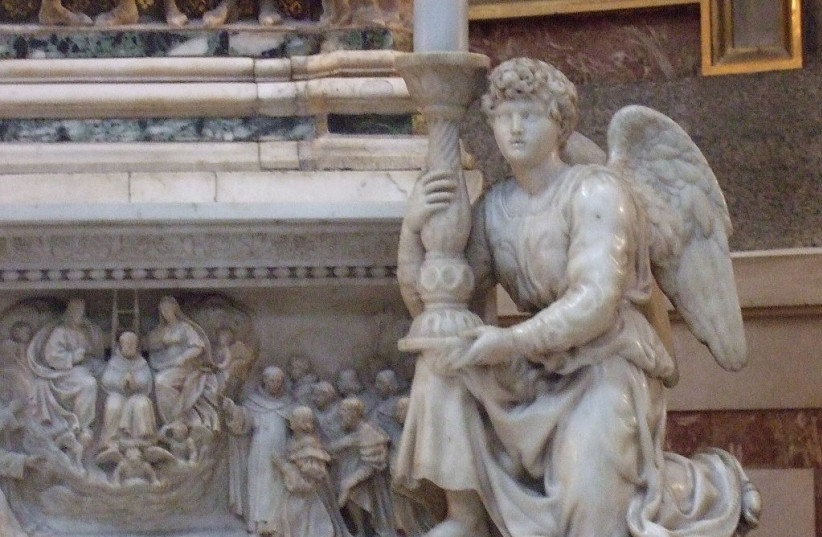For much of the winter I was assigned to the cold, damp, turkey coops. A malodorous muck covered my boots as I worked among fowl said to be among the dumbest of animals. Chasing after them, grabbing them, holding their wings, the work was hard and monotonous, the smell followed me everywhere. It followed me even into the dining room where the turkey schnitzel served at lunch seemed to me to reek of the coops.
Eventually spring arrived and the mud dried. The barren branches of pear and apple trees sprouted a sea of white flowers. The oranges ripened and I was assigned to the orchards where the work was much more pleasant. Arriving in the cool of the morning I would often pick a large juicy looking orange and place it in the shade of a tree to await our mid-morning break.
And yet even in those early weeks in that cold, wet, and gloomy winter, Shabbat transpired on an entirely different plane of existence. At a certain point, an hour or so before Shabbat, a total silence descended on the Kibbutz. It wasn’t just the absence of noise; the silence was so complete that you could reach out and touch it. Muddy work clothes and muddy work boots gave way to white shirts, dark pants, sweaters, and polished shoes. The women and girls dressed in the best their clothing budgets would allow.
Frowning faces as dreary and gloomy as the rainiest of winter’s days were suddenly transformed into smiles.
As dusk began to overtake the day, the paths leading to the synagogue filled with men, boys as well as young girls and their as-yet unmarried older sisters. Mincha, the weekday afternoon prayers were completed, and the congregation began singing, “Yedid Nefesh,” Beloved of My Soul, the song with its melody of love and longing that precedes the prayers that welcome the Sabbath.
I was new to Jewish observance, and when I arrived in Israel I had been keeping Shabbat for only a few months. It was there on the Kibbutz where I first heard this lovely, plaintive song, less commonly sung in the Diaspora than in Israel. I have heard Yedid Nefesh thousands of times since, yet never has the melody and the words – words that I hardly understood at all – brought me such peace as they did at the end of each of those cold, rainy, and dark winter weeks. But it was only after chanting Lecha Dodi, the song that welcomes the Sabbath bride, the song that is the centerpiece of the Friday evening prayers, only then. Only then did the angels arrive. It was at the moment when the entire congregation began to chant together the opening words of the Psalm of the Sabbath Day. At that very moment, and with those words, the Jewish people each week declares it has accepted the Sabbath. And then, right above as if peering down from the rafters, the angels – the messengers of the Holy One, Blessed be He – arrived bearing with them the gift of Shabbat. They came each week without fail to experience the Jewish people gratefully receiving the gift they had brought.
It was in those moments of light amidst the gloomy and even somber days and nights of that long ago winter that I first truly understood the day of rest. Israel is now a much brighter place, and no matter how blessed with rain the winter might be, and how cold, most homes and synagogues are heated. Though work is less physically tiring than the turkey coops or orange orchards, the Shabbat is still beautiful, replacing with its peace and quiet the hectic, noisy, constantly tethered weekdays. The symphony of silence still descends in the hour before the sun sets. Shabbat is now with my family; we have grandchildren now. Or with friends and sometimes just my wife and me. The tablecloth is white, the dishes and silver our best, and I am grateful for having found the gift of Shabbat so many years ago. Yedid Nefesh is still sung, and the opening lines of the Psalm of the Sabbath day are still chanted. But never since that winter, in that place and at that time, have I felt as strongly the presence of the angels bearing the Master of the Universe’s most precious gift. ■
The author is head of planning at the Mandel Foundation-Israel and vice president of Atid EDI.

